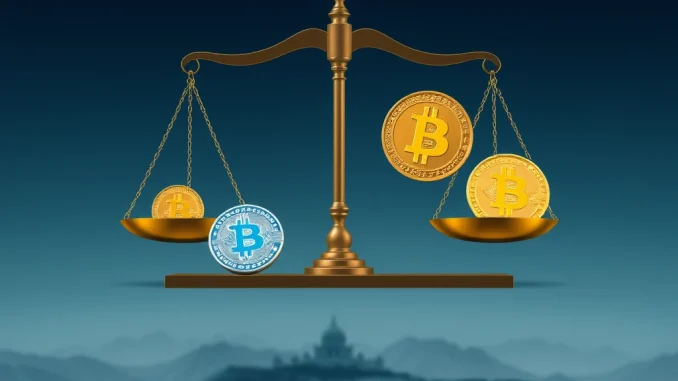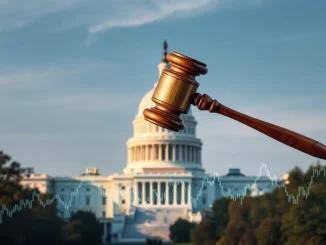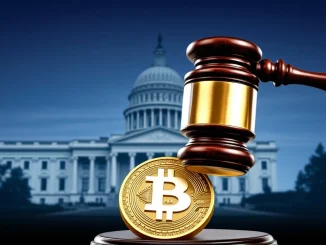
Hey crypto enthusiasts and concerned citizens! Ever wonder why regulations around cryptocurrencies in India seem stuck in limbo? You’re not alone. The highest court in the land, India’s Supreme Court, is also asking pointed questions, recently issuing a strong message regarding India crypto regulation.
Why is the Supreme Court India Concerned?
According to reports from Hindustan Times, the Supreme Court didn’t hold back its criticism of the central government’s approach – or lack thereof – to regulating digital assets. The core issue? The absence of a clear legal framework. This vacuum, the Court suggests, has unfortunately created an environment where misuse of these technologies can thrive.
Think about it. Without clear rules, it’s harder to protect investors, prevent illicit activities, or even understand how these assets fit into the broader financial system. This uncertainty affects everyone involved, from large institutions to individual traders.
Remembering the Past: A Two-Year Wait for India Crypto Policy
This isn’t the first time the Court has raised this issue. They reminded the government that they had requested a clear policy on virtual currencies India nearly two years ago. That’s a significant amount of time in the fast-paced world of cryptocurrency! The Court views the government’s continued inaction not just as a delay, but as a ‘deliberate disregard’ for a rapidly growing and complex issue that impacts the economy and citizens.
Here’s a quick breakdown of the Court’s key points:
- Criticism of government inaction on regulation.
- Highlighting the link between lack of framework and potential misuse.
- Reminding the government of a previous request for a clear policy (two years ago).
- Warning against an outright crypto ban India.
- Stressing the necessity of *some* form of regulation.
- Viewing continued inaction as ‘deliberate disregard’.
The ‘Ban vs. Regulate’ Debate: Why a Crypto Ban India is Unwise
Perhaps one of the most crucial points made by the Supreme Court is the warning against banning cryptocurrencies entirely. They called this approach ‘shortsighted’. Why? Because new global financial systems are constantly emerging, and virtual currencies are a part of that evolution. Trying to completely shut them out could mean missing out on potential innovation and participation in future financial landscapes.
Instead of a ban, the Court strongly advocated for regulation. Regulation doesn’t necessarily mean stifling innovation; it can mean creating guardrails for safe participation, defining legal status, establishing taxation rules, and setting up mechanisms for consumer protection and preventing money laundering or terrorist financing.
What Does This Mean for Virtual Currencies India?
The Supreme Court’s intervention adds significant pressure on the Indian government to finally articulate a clear India crypto policy. While the Court cannot dictate the specific rules, its strong stance underscores the urgency and highlights the potential risks of further delay.
For those holding or interested in virtual currencies India, this development is a hopeful sign that a structured legal environment might eventually emerge, potentially bringing more clarity and legitimacy to the space, while also addressing the concerns around misuse.
In Conclusion: The Call for Clarity on India Crypto Regulation
The message from India’s Supreme Court is clear and powerful: procrastination on India crypto regulation is no longer acceptable. They see the lack of a framework enabling misuse and view a complete crypto ban India as an unwise move in a changing global financial world. The call is for necessary regulation to bring structure and accountability to the growing domain of virtual currencies India. The ball is now firmly back in the government’s court to respond to this urgent judicial push for action and define the future of crypto in the country.



